FeaturedArticleMunkáltató
Improve your hiring strategy with AI interview tools
Have you integrated AI into your hiring approach? AI recruitment instruments offer benefits such as accelerating the hiring process, enhancing interview queries, and minimizing prejudice. In this article, we delve into how you can utilize AI to boost your recruitment strategy.

Case StudiesEmployer
Reed fills multiple vacancies for Lenovo Manufacturing Hungary Ltd
The challenge
Lenovo Manufacturing Hungary Ltd had been a client of Reed’s for years before they tasked us with a request for multiple professionals, with a short deadline.
Endre Bebinyecz, Senior HR Manager, Lenovo Manufacturing Hungary said: “I’ve worked with Reed for a long time–several years. In the current market, it can be a struggle to hire without support, so when we were looking to fill multiple new vacancies within the company, it was obvious we needed to contact Reed and there was no hesitation.”
Reed’s Senior Consultant for engineering, Noémi Kozma, had worked with Endre before, having supported him with hiring at another company before he joined Lenovo. She said: “Endre knows me and understands the quality of service I offer, through previous cooperation. We were confident we could meet his urgent request without compromising on quality.”
The solution
Noémi used her extensive talent network to shortlist suitable professionals, pre-interviewing them to assess technical and soft skills, experience, and cultural fit before introducing them to the client.
Throughout the process, Noémi kept the Lenovo team up to date, as well as the prospective candidates, with regular communication and support.
Endre stated:
“Reed’s communication style is prompt, clear and transparent throughout the process, which is always much appreciated by our team.
We received timely reports, clear profiles, and great candidates to choose from. Noémi and her team were humble, good listeners, and asked fantastic questions.”
Berta Pápics, who is now an Office Manager/Administrator at Lenovo, received her introduction to the role over the phone. “The entire process was very fast and efficient. The consultant informed me about the company and the role in detail, including the requirements of working for an international company, which was a new challenge for me.”
Berta praised Noémi and her team for their communication, from the initial search to the onboarding stage: “The frequency of calls was very satisfying. Noémi understood immediately what I was looking for and was very flexible, kind, fast and helpful.”
The results
Berta received a job offer from the company within two weeks of Noémi’s initial call. After considering the location, salary, responsibilities, and opportunities to improve her skills and knowledge in comparison to other roles, she accepted Lenovo’s offer.
She shared: “I am satisfied with my new work. Lenovo is a large multinational company, which provides a new environment for me. I feel this is a great opportunity to improve myself and I can learn a lot from the people I work with now.
“I’ve already learnt a lot, day by day, finding myself in different situations where my boss and team help and support me.”
Endre agreed Reed’s service was excellent: “I would absolutely use Reed again – it is simply great working with this company. Noémi Kozma is such a great consultant and a true professional. She always delivers above and beyond our expectations.
He concluded: “I would recommend Reed to anyone looking to recruit in this sector. The candidates joined in good time and are now all past their probation period. They are all helping elevate the company to its next level. Reed is a great company and I’m so happy to know them.”
If you’re looking for a talented professional or new opportunity, contact Reed Hungary today.
4 MINUTE READ

GuideCandidate
Ask James Reed: how to ace the job interview
Our 2025 Czech Republic salary guide looks at average salaries and benefits across 10 sectors. The guide uses data from jobs posted in the Czech Republic to highlight key trends and insights, enabling you to benchmark the average salaries for your workforce across the country, or find out what you could be earning.
Despite global challenges
Despite global challenges and economic pressures, the Czech Republic’s labour market remains relatively stable. However, the four per cent unemployment rate highlights the growing pressures being seen across certain sectors.Changes to probationary periods, notice periods, and provisions allowing individuals as young as 14 to work reflect efforts to modernise the labour market. These reforms aim to increase flexibility for employees and employers alike, but their long-term effects are yet to be seen.
To persuade professionals
To persuade professionals to join your organisation takes more than just a good salary. Stability is a top priority, and most workers in the Czech Republic will only consider a move for significantly higher salaries or roles in companies with strong reputations and benefits packages.
Using data from jobs
Using data from jobs filled by Reed, our 2025 Czech Republic salary guide is the ultimate salary checker, covering 10 sectors. By using our guide to inform your average salary, you’ll be able to understand what job roles are worth across the country, helping you to stand out when looking for new employees or searching for your next role. In addition, expert insight paints a picture of the trends influencing the sectors and provides advice for both employers and jobseekers on how to navigate the jobs market in 2025.
2 MINUTE READ

ResourcesEmployer
Redundancy letter templates & examples
Our 2025 Czech Republic salary guide looks at average salaries and benefits across 10 sectors. The guide uses data from jobs posted in the Czech Republic to highlight key trends and insights, enabling you to benchmark the average salaries for your workforce across the country, or find out what you could be earning.Despite global challenges and economic pressures, the Czech Republic’s labour market remains relatively stable. However, the four per cent unemployment rate highlights the growing pressures being seen across certain sectors.Changes to probationary periods, notice periods, and provisions allowing individuals as young as 14 to work reflect efforts to modernise the labour market. These reforms aim to increase flexibility for employees and employers alike, but their long-term effects are yet to be seen.To persuade professionals to join your organisation takes more than just a good salary. Stability is a top priority, and most workers in the Czech Republic will only consider a move for significantly higher salaries or roles in companies with strong reputations and benefits packages.Using data from jobs filled by Reed, our 2025 Czech Republic salary guide is the ultimate salary checker, covering 10 sectors. By using our guide to inform your average salary, you’ll be able to understand what job roles are worth across the country, helping you to stand out when looking for new employees or searching for your next role. In addition, expert insight paints a picture of the trends influencing the sectors and provides advice for both employers and jobseekers on how to navigate the jobs market in 2025.
2 MINUTE READ

ResourcesEmployer
How to effectively manage staff redundancies
Our 2025 Czech Republic salary guide looks at average salaries and benefits across 10 sectors. The guide uses data from jobs posted in the Czech Republic to highlight key trends and insights, enabling you to benchmark the average salaries for your workforce across the country, or find out what you could be earning.Despite global challenges and economic pressures, the Czech Republic’s labour market remains relatively stable. However, the four per cent unemployment rate highlights the growing pressures being seen across certain sectors.Changes to probationary periods, notice periods, and provisions allowing individuals as young as 14 to work reflect efforts to modernise the labour market. These reforms aim to increase flexibility for employees and employers alike, but their long-term effects are yet to be seen.To persuade professionals to join your organisation takes more than just a good salary. Stability is a top priority, and most workers in the Czech Republic will only consider a move for significantly higher salaries or roles in companies with strong reputations and benefits packages.Using data from jobs filled by Reed, our 2025 Czech Republic salary guide is the ultimate salary checker, covering 10 sectors. By using our guide to inform your average salary, you’ll be able to understand what job roles are worth across the country, helping you to stand out when looking for new employees or searching for your next role. In addition, expert insight paints a picture of the trends influencing the sectors and provides advice for both employers and jobseekers on how to navigate the jobs market in 2025.
2 MINUTE READ

Case StudiesEmployer
Teamwork leads to hiring success for Reed and Budapest financial firm
The challenge
A financial company in Budapest was searching for talent to meet the needs of its growing business, and as a longstanding client of Reed’s, naturally turned to us for help.
Their talent acquisition manager explained:
“We have been working with Reed for more than eight years – a testament of our satisfaction with their service. We’ve come to rely on them to find us the right people.
They understand what we want, ask the right questions, and have good ideas."
“Generally, Reed sends us CVs within a few weeks, even for senior roles. For our most recent recruitment drive, they sent us a polished shortlist of high-quality candidate profiles within two weeks, along with market insight including their Hungary Salary Guide, enabling us to stay competitive in the market.
The solution
Dóra Varga, Executive Recruitment Consultant in finance and accountancy at Reed, explained: “Our client was searching for over 100 professionals to fill various positions within their company over the past few years. Firstly, we always discuss our clients’ expectations of their ideal candidates’ professional experiences, including the soft- and technical skills they’re looking for.”
Reed works in specialisations, with a researcher and a consultant joining forces to provide a multi-stage screening process for prospective candidates. The researchers are responsible for pre-screening candidates and the consultants interview them.
During the search, Reed’s consultants continually update the client, providing feedback about the searches they’re making, relevant information about the market, and paying attention to their needs. Equal consideration is paid to jobseekers, with clear communication key to a positive experience all around.
Dóra said: “As part of our candidate preparation, we’ll ask them the necessary HR questions and ensure they know what to expect in terms of typical industry- and skills-based questions at their main job interview with the client. We also cover important details about the company and other professional information.”
The results
As is often the case with Reed’s involvement, it was good news all around for the Budapest employer and their new, permanent hires.
All candidates have now passed their probation period, with one new financial analyst thrilled to have found a business so in tune with the hopes and aspirations of a modern workforce: “The company provides multiple opportunities to learn, has a mentorship programme, and takes care of its employees with multiple benefits, a cutting-edge office, and a carefully planned work-life balance. It was a nice recommendation from Reed and a good choice for me.”
They said of their recruitment journey: “Dóra and her colleague Luca explained every step of the recruitment process in detail. We discussed everything about the role, and they prepared me for possible interview questions and provided every tool to succeed. They kept in regular contact with the company too, checking for updates which sped up the process.”
Reed’s successful delivery of the client’s brief was complete: to provide high-quality candidate profiles within two weeks and good market insight. Not content with box-ticking, however, Reed strives to give great customer service every time, building relationships based on trust and honesty.
Of their overall experience with Reed, the talent acquisition manager said: “As usual, we received a quick service, great candidates who were all well-prepared for the interview process, and a professional attitude from the Reed team.
“We’ve worked with other recruiters in the past and noticed a few key differences between them. Reed picks up niche and complex positions other agencies reject, is more professional and has a better attitude in comparison. We can count on Reed with every position and highly recommend them as a recruiting partner.”
Looking to hire a talented professional or take the next step in your career? Contact your local office and speak to one of our specialist recruiters.
4 MINUTE READ

Case StudiesEmployer
Rolling Wireless recruits software development team
The challenge:
Rolling Wireless, a global supplier of 4G and 5G modules for the automotive market, first chose Reed to help them fill a director role in 2021, which was swiftly done. The employer has offices around the world and was planning to open another in Hungary, led by their new Software Platform Director, Lajos Rancz, who was placed by talent scout, Anna Böröcz, Senior Recruitment Consultant at Reed. She explained: “After we found the ideal candidate in Lajos, we started working together to build the Hungarian software development team around him.”
Lajos was looking to create a department of some 20-30 people and was keen to have Reed’s support and specialist tech knowledge. He said: “In the past, we tried to work with freelance head-hunters, but it was not very successful.”
Anna was sure her team could provide the help Lajos needed, tailoring the service to the company’s budget and requirements.
The solution
Anna sourced candidates mainly on LinkedIn, managing the hiring process with typical Reed professionalism: providing regular updates to all parties, careful to maintain “a quick reaction time and continuous feedback”.
Hungary’s tech labour market has seen greater demands from jobseekers in terms of higher pay and the ability to work from home. Other than that, the search was straightforward, according to Anna: “I told prospective candidates the expectations of each role in detail, the tasks, and made sure they had similar experience to what was required.”
Lajos added:
“We have now been working with Reed continuously since last autumn, recruiting the Hungarian development team, and have several Reed candidates working for us. We are happy with them, and they are a very good team.
“Overall, we’re very satisfied with our working relationship with Reed, who have provided us with quality candidates.”
The results
The tech team is taking shape: so far, 11 candidates have received an offer from Rolling Wireless, of which eight have accepted.
Of the outcome, Anna said: “Rolling Wireless is pleased with our service, which I am very happy about – I also really like working with them. The candidates are fitting in well and like their new workplace.”
Attesting to this is Gábor Wunderlich, Senior Embedded Software Engineer, placed by Reed into the new Rolling Wireless team, who commented:
“I can only confirm my positive experience. Frequent communication with Anna helped make the recruitment process a success – she ensured full contact between the company and me, quickly and accurately communicating messages and requests between us.”
Gábor is also pleased with the development opportunities that his new role offers, which allows him to improve his English language skills through regular contact with foreign colleagues. He concluded: “I won't be looking for a new position anytime soon, and I highly recommend anyone looking for a new job to try Reed.”
Looking to hire a talented professional or take the next step in your career? Contact your local office and speak to one of our specialist recruiters.
3 MINUTE READ
